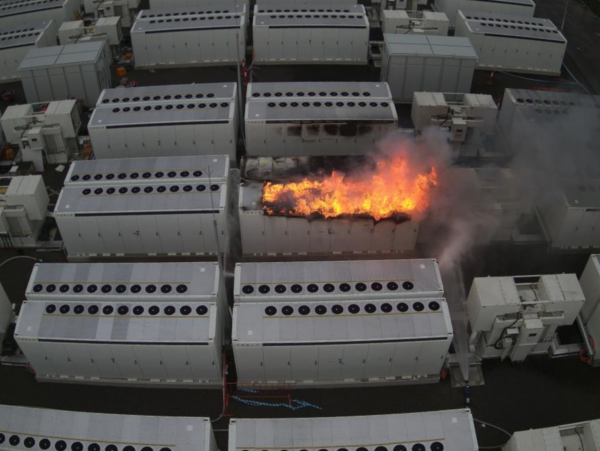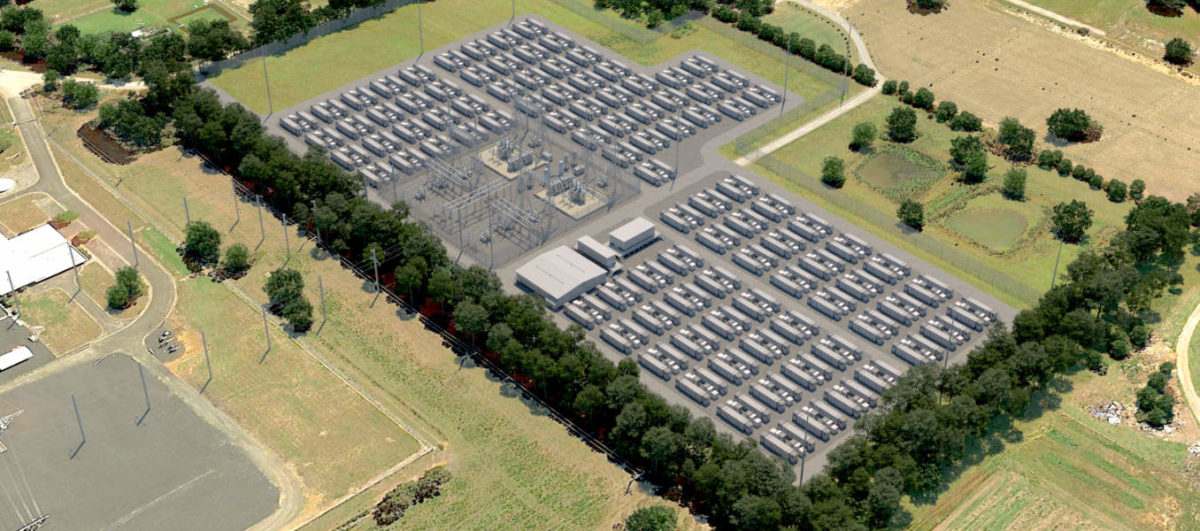Australian renewable energy developer Maoneng has cited safety concerns as the key driver for its decision to use lithium iron phosphate (LFP) batteries at its proposed Mornington Peninsular Battery Energy Storage System (BESS).
Sydney-based Maoneng is planning to build a 240 MWp/480 MWh BESS at Tyabb on the Mornington Peninsula. The company is currently undertaking a competitive tender process to select its contractor for the project, which is expected to be completed by late 2022, but has already confirmed LFP batteries will be used.
In a statement issued just six days after fire damaged two Tesla Megapack battery modules at the Neoen-developed Victoria Big Battery, Maoneng said it would utilise LFP batteries at the proposed facility due to the technology’s strong safety performance.
Maoneng, which has announced plans to develop more than 1.8 GWh of utility-scale battery storage projects across Australia, said the decision comes after an extensive technical analysis of various battery types available on the global market.
“LFP batteries have a relatively much higher thermal stability and less dense chemical composition than other varieties prominent in utility scale batteries, such as NMC (nickel manganese cobalt) technology, therefore significantly reducing risks,” the company said in a statement.
Maoneng CEO Morris Zhou said safety is the company’s top priority, and it is important for people to understand how battery technology varies and risks are mitigated.
“Batteries will play an increasingly important and necessary role as Australia transitions from traditional energy sources to renewable energy,” he said.
“LFP technology has a very good safety record, which is why we have chosen it for the Mornington BESS.
“The batteries will be supported by other systems to enable a high level of confidence in our approach to safety.”

Image: Fire Rescue Victoria
Maoneng’s decision comes just days after a fire started during testing of the 300 MW/450 MWh Victoria Big Battery, which is due for completion this year. It was more than three days before emergency services declared the fire under control but there has been no update on its cause.
Tesla announced earlier this year it would switch to LFP chemistry from NMC for its Megapacks, but it is not clear which chemistry has been used in the Victoria Big Battery.
Neoen Australia managing director Louis de Sambucy told AAP “physical inspections and investigations are now underway”.
Maoneng said in addition to the LFP batteries, the Mornington BESS will also have other safety management measures incorporated into its design.
Among these will be a state-of-the-art fire detection system, plus an advanced fire suppression system that operates 24/7 and deploys a condensed aerosol agent to automatically handle any potential hazard in minutes.
“The fire suppression system is globally proven and used in many critical applications to suppress fire in the enclosed special hazard conditions often found in power generation, battery energy storage, and oil and gas projects,” the company said.
“The agent itself is environmentally friendly, and typically remains suspended in the battery container to help prevent reignition.”
As well as the Mornington BESS project, Maoneng has also filed plans to develop a 225 MW/450 MWh battery energy storage at Gould Creek in South Australia and has a contract to develop four large-scale batteries, each 50 MW/100 MWh in capacity in New South Wales (NSW), for energy giant AGL.
Its portfolio includes nearly 300 MW of generation power from the Sunraysia Solar Farm in NSW and the Mugga Lane Solar Park in the ACT, which is enough to power over 50,000 homes across Australia.
This content is protected by copyright and may not be reused. If you want to cooperate with us and would like to reuse some of our content, please contact: editors@pv-magazine.com.









Why aren’t Nickel Iron batteries being used. environmentally friendly, safe, robust, stable, old technology. The only problem is they don’t need to be replaced every decade, will probably be working in over 50 years time, then can be easily recycled.